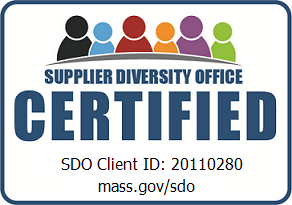As we head into one of the busiest travel days of the year, it is important to understand the ever-changing guidelines surrounding COVID-19. We know that the holidays can already be a stressful time, so we have broken down and simplified the latest requirements to help you navigate the process.
Following recommendations made by the CDC, the U.S. Government relaxed foreign travel policies on November 8th by announcing non-U.S. citizens can now enter the United States if they are fully vaccinated. The CDC considers a person fully vaccinated two weeks after their second dose in a 2-dose series (Moderna or Pfizer vaccines) or two weeks after a single-dose vaccine (Johnson & Johnson’s Janssen). This is the first time since the borders closed in March 2020 that non-US citizens are able to travel from more than 30 countries including China, India, Brazil, and most European countries. Please note, U.S. Citizens do not have to be fully vaccinated upon reentry into the United States.

How do the latest policies impact my international travel plans?
If you are a citizen of the United States, there has been no change to the COVID-19 testing requirements to re-enter the country. All air passengers two (2) years or older are required to present a negative test prior to boarding their flight. The two types of viral tests used to detect the virus that are currently accepted are the nucleic acid amplification tests (NAATs), more commonly referred to as PCR, and the antigen test, more commonly referred to as the rapid test. We have summarized the conditions below.
Vaccinated U.S. Citizens:
Regardless of what country you are traveling from, upon reentry into the United States, vaccinated travelers must provide proof of a negative COVID-19 test within 72 hours of your flight’s departure, along with proof of vaccination.
For a list of acceptable vaccinations and ways to show proof of vaccine please visit the CDC website.
Unvaccinated U.S. Citizens:
Upon reentry into the United States, unvaccinated travelers must provide proof of a negative test within 24 hours of your flight’s departure. If you have recovered from COVID-19 within 90 days of your departure date, you may provide documentation of recovery and a letter from a licensed healthcare provider instead of a negative test.
Non-U.S. Citizens:
All foreign travelers must be fully vaccinated against COVID-19 in order to enter the United States as of November 8, 2021. In addition to verifying full vaccination status, foreign travelers must also provide proof of a negative test within 72 hours of their flight’s departure. All international travelers transferring through the U.S. are bound to the same requirements, regardless of their final destination.
I’ve met all of the requirements, now what?
If you have flown internationally in the last year, you will notice that you must upload all of the necessary documentation before you can check-in to your flight. Apps like VeriFly and TrustAssure make it easy to connect your flight reservation and submit all necessary paperwork. Please read all privacy policies related to document storing before making any uploads. Be sure to give yourself ample time at the airport as long lines are common and many airlines are still experiencing staffing shortages. As a reminder, masks are required at all times in indoor areas of public transportation, including airplanes. Once you have boarded the plane, sit back, relax, and enjoy your flight.
How do the latest policies impact corporate group travel plans?
With the new year right around the corner, The Castle Group is gearing up for both domestic and international travel in 2022. Group travel is back in business, and we could not be more excited! When it comes to hosting an event that requires travel, it is important to keep in mind the specific rules and regulations of each prospective destination. Staying alert of high risk destinations is an important factor when planning your event. Although some destinations are considered high risk, most are allowing leisure travel. The Bahamas, for example, is considered a high-risk destination and does not have a travel ban in affect but requires a health visa for all international travelers. The safety and wellbeing of your guests is crucial and can be achieved by following the protocols put in place by your organization and the destination in which you are traveling to.
Airlines are also gearing up as consumers gain more confidence in traveling. Delta Airlines is restoring travel to many European destinations such as Brussels, Copenhagen, Edinburgh, Munich, Prague, and Zurich. There will also be more international flights departing from New York’s JFK and Boston’s Logan International Airport.
Finally…
I flew to England a few months ago and was pleasantly surprised at how organized and efficient the check-in process surrounding COVID-19 was. We arrived early and found ourselves with plenty of time to grab a bite to eat and pick-up last-minute reads for the plane. With all of the unknowns we are still facing, it was calming to experience something familiar to many of us.
When traveling internationally it is imperative to fully understand the travel policies of your final destination. The information found in this blog applies exclusively to those returning to the US. Each country has its own guidelines to consider and its own way of collecting information. Be sure to fully review and understand the requirements in advance to give yourself enough time to get organized and properly prepare.
















